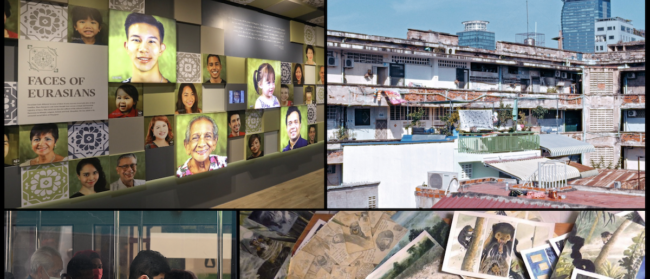Hello! I’m writing from inside a mosquito-netted hammock in northeastern Cambodia’s Ratanakiri province, where I am working with my colleague, Vuthtey, on articles we hope you will enjoy in the coming weeks.
During this trip I’ve crashed our moto twice on the rain-slicked, country roads (no one was hurt.) Unlike the moto rides, our reporting has stayed on track.
What strikes me about Ratanakiri is how recently the transition to capitalism has taken hold. Around 30 years ago the first cashews reportedly arrived, with many ethnic minority groups like the Kreung unsure about their use. Now these trees, along with rubber plantations and other cash crops, cover the landscape. In the areas we have visited, elders said cashews are one of the crops shifting local perspectives on land management, leading to firmer boundaries and more individualised approaches to land use. The commoditisation of land exemplified by cashew farming has made residents eager to take out loans they may struggle to pay back or given them an incentive to encroach on protected forest land.
Cashews have also delivered significant sources of income and provided a way to compete in the globalised economy from which residents were somewhat shielded during Cambodia’s turbulent decades. Recognising the need to improve cultivation and processing, Cambodia is finalising a National Cashew Policy. (For anyone wondering, the Globe’s cashew policy is to eat them). The emergence of the cashew is a topic we hope to explore in more depth, including tracking some of the first people in the Kingdom to plant the crop. Stay tuned and please reach out if you have an interest or insight about our coverage!
And now on to the week’s features!
After the death of Cambodian migrant worker Nuon Sokkheng last year, South Korea’s foreign labour policies came under scrutiny, Jack Brook and Samphors Sao report. While some key reforms have been enacted, the living conditions and work environment for Southeast Asian labourers in South Korea remain difficult, activists and employees say. We profile a Cambodian migrant to understand the challenges and pitfalls.
Malaysia’s art scene faces increasing censorship due to the politics of Islamisation, but many of the nation’s artists are pushing back, reports Amanda Oon. With limited opportunities to express traditional arts through official channels, creators are finding alternative ways to share their work.
The fearsome Komodo dragons of Indonesia have been placed on the endangered species for the first time. American photojournalist Harrison Forman traveled to Komodo island in 1956 and his historic images offer a window into human interaction with the great lizards before society understood the dangers of climate change and man’s encroachment, reports Brian P. D. Hannon.
Five years after the passing of beloved Thai monarch Bhumibol, King Maha Vajiralongkorn has not lived up to his predecessor’s legacy, writes Mark S. Cogan. Whereas Bhumibol held the throne for seven decades, developing a reputation as a leader focused on the welfare of the nation, the current ruler appears to have abandoned attempts to live up to that standard.
Criticism of Thailand’s royal family, which is normally taboo due to a restrictive lèse-majesté law and the widely held reverence for former King Bhumibol, has become more acceptable in mainstream Thai discourse, writes Pavin Chachavalpongpun. The founder of the popular Facebook group Royalist Marketplace says online spaces have helped generate much needed debate about possible reforms of the monarchy.
Malaysia’s poverty rate has soared as the nation struggles to recover from the economic and social impact of the Covid-19 pandemic, writes Dr Hartini Zainuddin, founder of child welfare centre Yayasan Chow Kit. As children are forced to scavenge for food in bins, Zainuddin calls for improvements and greater support of relief work conducted by NGOs.


